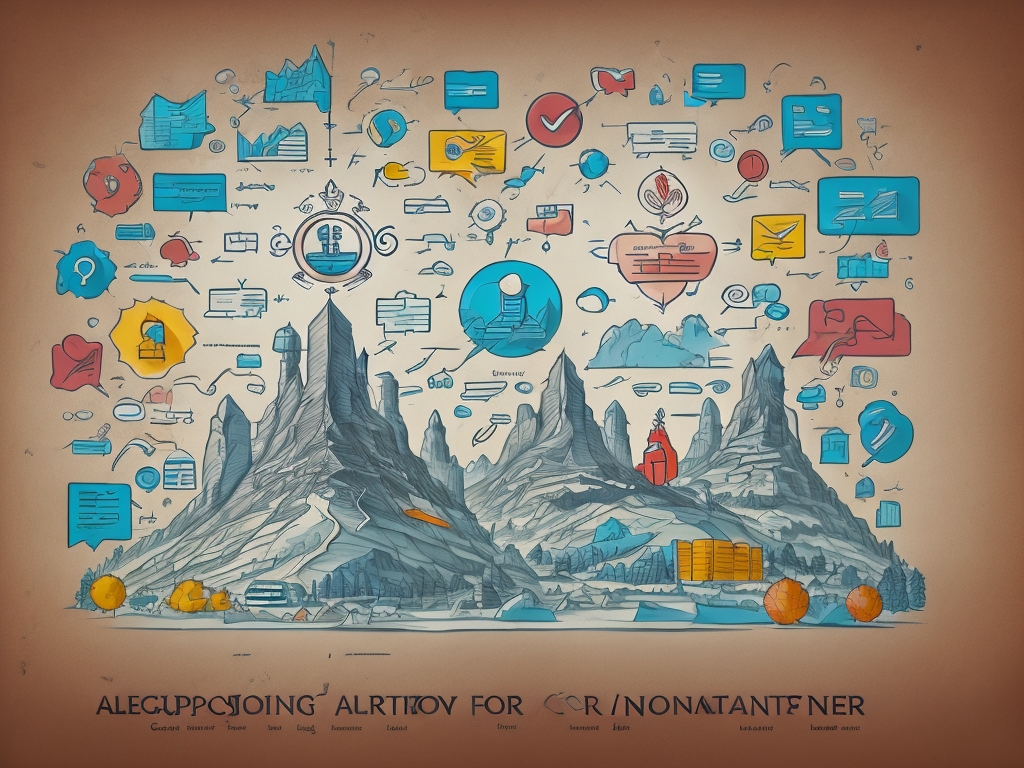Navigating the path to sobriety can be a challenging yet profoundly rewarding journey. For countless individuals struggling with alcoholism, Alcoholics Anonymous (AA) has provided a beacon of hope, offering a supportive community and a proven approach to overcoming addiction. Through the powerful stories shared within the AA community, we can gain valuable insights into the resilience and determination required to reclaim one’s life from the grip of alcohol abuse.
| Key Features of Alcoholics Anonymous | Description |
|---|---|
| Twelve Steps | The foundation of the AA program, the Twelve Steps outline a spiritual and practical path to recovery, guiding participants through self-reflection, making amends, and developing a connection to a higher power. |
| Peer Support | AA meetings provide a safe and judgment-free environment where individuals can share their experiences, offer support, and learn from one another’s journeys, fostering a sense of community and belonging. |
| Anonymity | The principle of anonymity is central to AA, allowing participants to openly share their stories without fear of stigma or repercussions, and promoting a focus on personal growth rather than individual recognition. |
Personal Accounts of Hitting Rock Bottom
The stories shared within the AA community often begin with a common thread: the realization that alcohol has taken complete control, leading individuals to a point of utter despair and hopelessness. These personal accounts of hitting rock bottom serve as a powerful reminder of the devastating consequences of alcoholism, but they also inspire hope by showcasing the human capacity for resilience and transformation.One such story is that of Sarah, a successful business executive who had long struggled with a drinking problem. “I remember the day I finally admitted to myself that I was an alcoholic,” she recounts. “I had lost my job, my relationships were in shambles, and I was on the verge of losing everything. It was the lowest point of my life, but it was also the moment I knew I had to make a change.”
The AA Approach to Overcoming Addiction
The Alcoholics Anonymous program offers a comprehensive approach to overcoming addiction, centered around the Twelve Steps. These steps, which include acknowledging one’s powerlessness over alcohol, making amends to those harmed, and developing a spiritual connection, provide a framework for personal growth and lasting recovery.The AA approach emphasizes the importance of personal responsibility, self-reflection, and a willingness to change. Participants are encouraged to attend regular meetings, engage in peer support, and work closely with a sponsor – an experienced member who guides them through the recovery process.
Finding Strength in the Twelve Steps
The Twelve Steps of Alcoholics Anonymous are often described as the foundation of the program, providing a roadmap for individuals to navigate the complexities of addiction and recovery. These steps are not merely a set of instructions but a deeply personal journey of self-discovery and transformation.For many AA members, the Fourth Step – taking a searching and fearless moral inventory of oneself – is a pivotal moment in their recovery. As John, a long-time AA participant, explains, “The Fourth Step forced me to confront the root causes of my alcoholism, the resentments and character defects that had been holding me back. It was a difficult process, but it ultimately allowed me to let go of the past and focus on building a healthier future.”
Navigating the Road to Sobriety
The journey to sobriety is rarely a straight path, and AA members often face a range of challenges and setbacks along the way. However, the program’s emphasis on taking it “one day at a time” and developing coping mechanisms to manage cravings and temptations can be instrumental in maintaining progress.
For many, the first few months of sobriety can be the most challenging, as they adjust to a life without alcohol and learn to navigate social situations and daily routines without the crutch of drinking. The support of the AA community, combined with a commitment to the Twelve Steps, can provide the necessary tools and resilience to overcome these obstacles.
Rebuilding Relationships in Recovery
Alcoholism can have a devastating impact on personal relationships, as the addiction often takes priority over the needs of loved ones. The AA program encourages participants to make amends and rebuild trust with those they have harmed, recognizing that the path to recovery extends beyond the individual.Megan, a mother of two, shares her experience: “When I first joined AA, I had to face the reality that my drinking had hurt my family in ways I couldn’t even imagine. The process of making amends and rebuilding those relationships was incredibly difficult, but it was also essential to my recovery. Seeing the forgiveness and support of my loved ones was a powerful reminder of why I was fighting to stay sober.”
Embracing a Sober Lifestyle
Achieving sobriety is just the beginning of the journey; the real challenge lies in embracing a new, sober lifestyle and finding fulfillment without the crutch of alcohol. AA members are encouraged to explore hobbies, develop healthy coping mechanisms, and surround themselves with a supportive network of sober friends and mentors.As David, a long-time AA member, reflects: “At first, I was terrified of the idea of living a sober life. I had spent so many years using alcohol to cope with my problems, and the thought of facing them head-on was daunting. But as I immersed myself in the AA community and discovered new passions and interests, I realized that sobriety offered a level of clarity and purpose that I had never experienced before.”
Overcoming Setbacks and Maintaining Progress
Sobriety is a lifelong journey, and even the most dedicated AA members may face setbacks and challenges along the way. The program emphasizes the importance of resilience, self-compassion, and a willingness to seek support when needed.Jessica, a recent AA graduate, shares her experience: “I’ve had my fair share of slip-ups and moments of weakness, but the AA community has always been there to pick me up and help me get back on track. They remind me that relapses are a part of the process and that the key is to learn from them and keep moving forward.”
The Role of Community in AA Recovery
At the heart of the Alcoholics Anonymous program is the power of community. The AA meetings provide a safe, non-judgmental space where individuals can share their stories, offer support, and learn from one another’s experiences. This sense of belonging and camaraderie is often cited as a critical factor in the success of the program.As Sarah reflects: “When I first walked into an AA meeting, I was terrified and felt completely alone. But the moment I heard others sharing their stories and offering their support, I knew I had found a community that understood what I was going through. That sense of connection and understanding has been invaluable in my recovery journey.”
Inspiring Stories of Transformation
The Alcoholics Anonymous community is filled with countless stories of transformation, where individuals who once felt hopeless and trapped by their addiction have reclaimed their lives and found a renewed sense of purpose. These inspiring tales serve as a testament to the power of the human spirit and the transformative potential of the AA program.
One such story is that of Michael, who had struggled with alcoholism for over a decade before finding his way to AA: “I remember the day I walked into my first AA meeting, completely broken and convinced that I would never be able to break free from my addiction. But as I listened to the stories of others who had been in my shoes and found a way to reclaim their lives, I felt a glimmer of hope. Slowly but surely, I began to work the Twelve Steps, and with the support of my AA community, I was able to transform my life in ways I never thought possible.”
Practical Tips for Getting Started with AA
For those seeking to embark on the journey of recovery through Alcoholics Anonymous, the prospect of taking the first step can be daunting. However, the program offers a wealth of resources and practical guidance to help individuals get started and navigate the recovery process.- Here are a few key tips for those new to AA:
- Attend a local meeting and introduce yourself to the group
- Find a sponsor who can guide you through the Twelve Steps
- Engage in the program’s daily rituals, such as reading the Big Book and keeping a journal
- Explore the wealth of AA literature and online resources to deepen your understanding of the program
- Be patient and kind to yourself as you navigate the ups and downs of the recovery journey
The Lasting Impact of AA on Participants’ Lives
For countless individuals who have found their way to Alcoholics Anonymous, the program’s impact extends far beyond the initial achievement of sobriety. The principles and values instilled through the Twelve Steps often lead to profound personal growth, stronger relationships, and a renewed sense of purpose and meaning in life.As David reflects on his journey: “AA didn’t just help me stop drinking; it transformed the way I approach life. The program has taught me the importance of self-reflection, accountability, and a connection to something greater than myself. I’m not the same person I was before I joined AA, and I’m grateful for the opportunity to continue growing and evolving as a sober individual.”
Conclusion
The inspiring stories shared within the Alcoholics Anonymous community serve as a powerful testament to the resilience of the human spirit and the transformative potential of the program. Through the shared experiences of individuals who have overcome the grip of alcoholism, we can gain invaluable insights into the challenges and triumphs of the recovery journey. Whether you or a loved one are struggling with addiction, the Alcoholics Anonymous program offers a beacon of hope and a roadmap to a life of sobriety, purpose, and fulfillment.Frequently Asked Questions
What is the history of Alcoholics Anonymous?
Alcoholics Anonymous was founded in 1935 by Bill Wilson and Dr. Bob Smith, two individuals who had struggled with alcoholism and found a path to recovery through mutual support and a spiritual approach to overcoming addiction. The program’s Twelve Steps and emphasis on anonymity have since become the foundation for countless recovery programs around the world.How does the Twelve Steps of AA work?
The Twelve Steps of Alcoholics Anonymous provide a structured, spiritual framework for individuals to confront their addiction, make amends, and develop a connection to a higher power. From acknowledging one’s powerlessness over alcohol to making a moral inventory and seeking to help others, the steps guide participants through a transformative journey of personal growth and recovery.What is the role of sponsorship in AA?
Sponsorship is a crucial aspect of the Alcoholics Anonymous program, where experienced members guide newcomers through the recovery process. Sponsors provide emotional support, practical advice, and accountability, helping individuals navigate the challenges of sobriety and deepen their understanding of the Twelve Steps.
Facebook
Twitter
LinkedIn
Reddit
Facebook
Twitter
LinkedIn
Reddit
